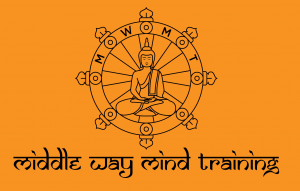To the average Western layperson, Buddhism denotes a mystical foreign religion, more often than not, something that is practiced mainly in the east and one that commonly evokes images of monks cloaked in orange robes, usually chanting and meditating.
The Buddha is well recognized in the West, mainly through countless statues and prints that adorn thousands or probably hundreds of thousands of yoga, massage and meditation centers, not to mention homes and offices. You don’t have to study Buddhism to feel the peaceful and calming energy that his image radiates.
The Buddha himself never intended to start a religion and Buddhism in truth is really not a religion, there is no belief in a certain God, and Buddha did not claim to be a God, he was just an exceptional human being. His sole intention was to find a way to eliminate suffering.
His meditative journey took him to understand that the one common desire that every human being has, is to simply be happy. As human beings though, we are born into a world that is subject to aging, disease and death. We are not immortal and because of this inevitable process we call life, we are unfortunately destined to suffer in some way.
The Buddha, in his wisdom, discovered not only that suffering exists, but the cause of suffering. Probably more than any scientist on earth, he was able to grasp in great detail that people suffer because they crave or desire things that they cannot have or cannot accept. Even the concept of impermanence, is very difficult for most people to accept, that everything in life arises and then passes away, nothing is really permanent, not even emotions or thoughts. Take a regular table or chair, and look at it under a microscope and you will see that it is not really solid but made of moving atoms and molecules with more than 99 percent space. With time, even that table or chair will deteriorate and pass away.
So, the Buddha was able to recognize that suffering is a part of the human condition, it’s unfortunately what we signed up for as human beings. We cannot escape the inevitable, sooner or later whether we want to or not, we will age, we will eventually get sick and at one point, we will die. There is no escape from this. To accept this basic fact is not easy for most people, in fact, most people live their lives avoiding or fearing what is really inevitable. The death of a loved one is often one of the most traumatic events that confront us and some of us will live in denial and grieve for the rest of our lives. Yet we will all encounter this event at some point in our lives.
Many view the Buddhist philosophy as somewhat overly negative as it often states that life is full of suffering. But while the Buddha recognized this, he also probed much deeper into the workings of the human mind. The reason we suffer is because of our ignorance. If we can learn to accept impermanence and control our insatiable desires and cravings, we would probably eliminate a lot of suffering in our lives. When we think about it, suffering is just a product of our mind, and if our mind can be trained to see reality the way it really is and not what we want it to be, we really could live much more happier and fulfilled lives. So there is a way out.
As I mentioned, the Buddha’s main goal was to find a way to eliminate suffering. Once we can accept what suffering is, its cause, and that there is a way to eliminate it, there needs to be a way to achieve that wonderful state of mind.
The Buddha’s teachings explained a scientific and practical method to eliminate suffering. It was called the Noble Eightfold Path or the Middle Way. His path outlined for the first time in history a way to successfully deal with mental pain and suffering in life. It involved 3 main elements: training in ethics by avoiding deeds that are not beneficial to you or to others, developing concentration by training the mind through concentration meditation, and cultivating wisdom by developing insight into the true nature of reality.
2500 years later after the Buddha walked this earth; the scientific world has started to take notice. Yes, change sometimes takes a lot of time. Many people are unaware that the currently growing trends of meditation, mindfulness, Mindfulness-based cognitive therapy, Mindfulness-based Stress Reduction have their original roots in Buddhist philosophy.
As modern psychology and psychotherapy evolve, science is now increasingly looking back to the volumes of ancient Buddhist teachings compiled almost 2500 years ago about the human mind, which are unlocking new doors to successfully treating a variety of psychological disorders.
So what is Buddhism really? Not really a religion. Maybe it is more a philosophy or way of life, or perhaps a scientific method to train the human mind. What Buddhism really is to me is the enlightening science of psychology, and it is available to every one of us regardless of race or religion.
Buddhist psychology as it is commonly known today is a practical scientific method to understand, train and awaken the mind with the aim to achieve what we all really desire, that which unfortunately evades most of us in our lives, and that is true, lasting happiness.


